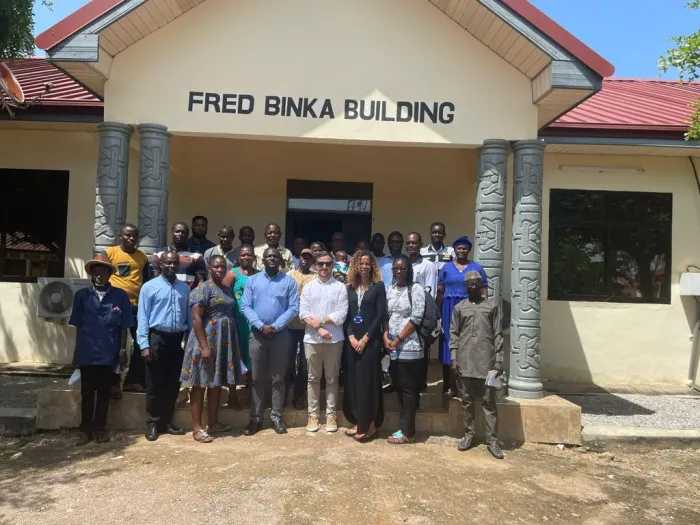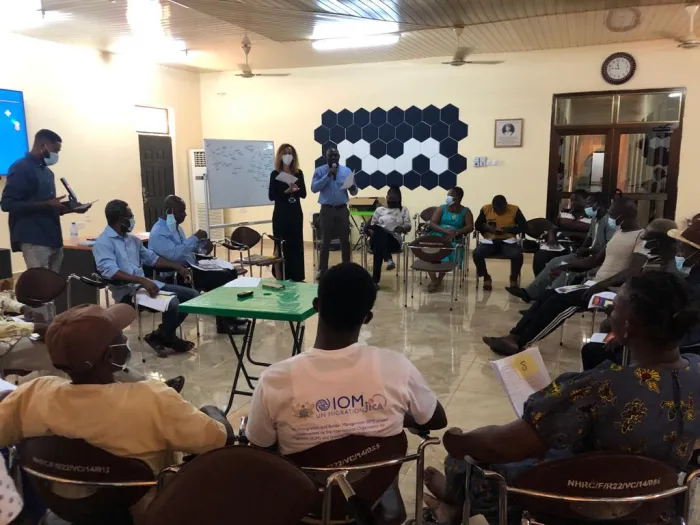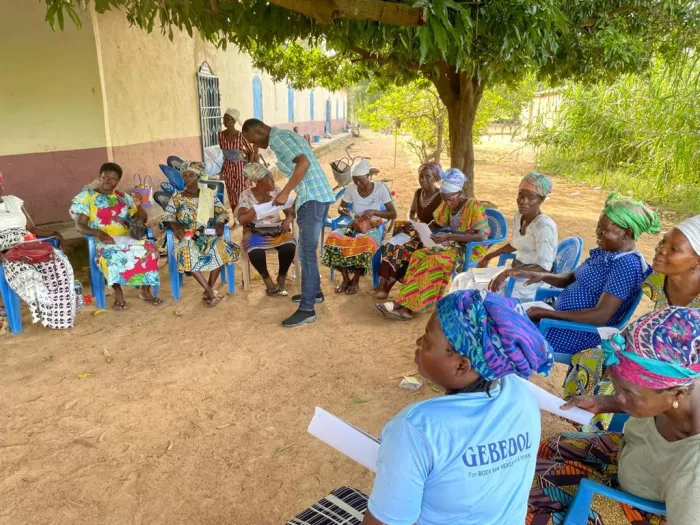
The visit was part of a research grant from the European Foundation for the Study of Diabetes, led by Professor Sam Seidu, focussing on faith Centre based models to improve the uptake of screening services for diabetes and cardiovascular risk factors.
The group worked through the novel ways in which health screening and education can be delivered, through local church, mosques and organisations which play a vital part in people’s everyday life, to improve access in communities who are at high risk and struggle to access basic healthcare and medication.
Dr Natalie Darko, Associate Professor at the University of Leicester, and Dr Andrew Willis researcher at the National Institute for Health and Care Research (NIHR) Applied Research Collaboration (ARC) East Midlands worked with healthcare professionals, academics and faith and community leaders at a two-day workshop during a visit to the Navrongo Health Research Centre, Ghana (9-18 October).

Professor Sam Seidu said: “Collaborating with community leaders during October’s Black History Month and beyond highlights how crucial it is for informative research to be accessible to communities in rural Ghana.
“People are living longer with long-term conditions, so it is vital to provide them with the right care, at the right time and equip them with the knowledge to self-manage. To achieve this, community leaders want to work collaboratively and be trained to deliver high-quality advice, which is of good value and based on evidence.
“Only taking a long-term, holistic view of health care will we, and particularly the most vulnerable populations, be able to help people to take better control of their health.”
Detection, and control of diabetes and cardiovascular disease are not prioritised in Ghana due to the continued burden of communicable diseases, lack of screening availability compounded by lack of knowledge and resources to support effective self-management.

Dr Willis added: “The purpose of the trip was to collect data and map community-based assets which will lay the groundwork for us to return next year to carry out screening and risk assessments for type 2 diabetes and other cardiovascular risk factors.
“We will be bringing together these community-based assets to ensure that the faith organisations continue to support their congregation to work to prevent diabetes and cardiovascular disease beyond the life of the study.
“Our work is based on the premise that those most affected by health, social and economic inequalities often have the least opportunity to inform and shape health and social sciences research, education, policy and practice. We want to ensure that those who are most in need of these services are able to access opportunities, through our collaborative research.”
Dr Natalie Darko added: “Black History Month is a time to foster an understanding of the lives of black people in general. Importantly, during this time we can develop understanding of the disparities that exist in health and adversely impact Ghanian populations. For this project the team of health experts, researchers and community leaders in Ghana and the UK are coming together to ensure Ghanian communities feel understood, represented and supported not only during Black History month but every month.”
